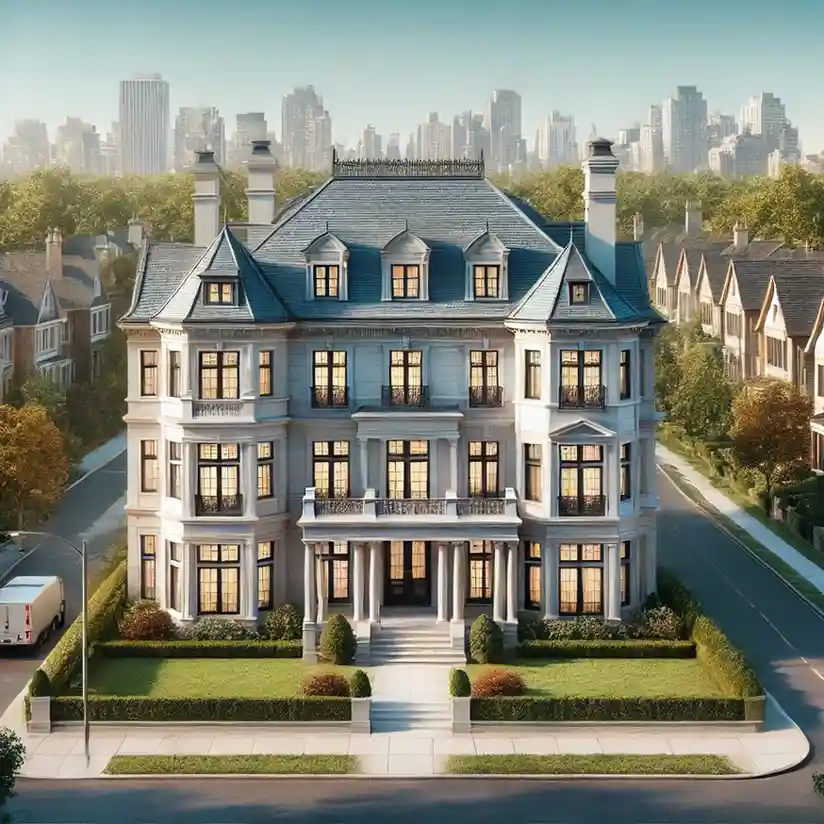5 Key Housing Market Trends You Can’t Ignore in 2025
The housing market is constantly evolving, shaped by economic forces, policy changes, societal shifts, and technological advancements. As we step into 2025, real estate professionals, investors, and homeowners must keep a close eye on the key trends that will define this year. In this comprehensive guide, we explore the 5 key housing market trends you can’t ignore in 2025. Whether you’re planning to buy, sell, or invest in real estate, understanding these trends will give you a strategic edge. 1. Home Prices Stabilize but Stay Elevated The past few years have seen volatile price movements due to pandemic-induced demand, supply chain disruptions, and inflation. However, in 2025, we are witnessing a stabilization in home prices. Although they remain historically high, the rapid increases of previous years have tapered off. Factors Contributing to Price Stabilization: Moderate demand: Buyers are becoming more cautious due to higher mortgage rates. Improved supply: New housing developments and relaxed zoning laws are increasing inventory. Cooling inflation: As inflation eases, real estate markets are adjusting to a new normal. LSI keywords: home price trends, housing affordability, real estate price forecast Takeaway: Sellers can still benefit from strong home values, but bidding wars are less common. Buyers should act strategically, seeking value in stabilizing markets. 2. Mortgage Rates Remain a Key Influencer Mortgage rates continue to be a crucial factor shaping buyer behavior and housing affordability in 2025. Following the interest rate hikes by central banks in previous years, mortgage rates have settled at a higher average range of 6% to 7%. What This Means for Buyers: Higher monthly payments are reducing the purchasing power of many first-time homebuyers. Refinancing activity has slowed significantly, affecting lenders and financial institutions. Adjustable-rate mortgages (ARMs) and creative financing options are making a comeback. LSI keywords: mortgage interest rates, home loan trends, real estate financing options Takeaway: Understanding your loan options and locking in favorable rates is more important than ever. Working with knowledgeable mortgage advisors can make a significant difference. 3. Housing Inventory Sees a Boost from New Construction One of the biggest bottlenecks in recent years has been the lack of available homes. In 2025, we are seeing a noticeable improvement in housing inventory thanks to a surge in new construction projects and government initiatives promoting affordable housing. Key Drivers of Inventory Growth: Government subsidies and incentives for builders Technology-driven construction, including 3D-printed homes Build-to-rent developments targeting long-term renters LSI keywords: housing supply, new home construction, real estate development Takeaway: A more balanced market is emerging, offering better opportunities for buyers and reducing upward pressure on prices. 4. Remote Work and Hybrid Models Reshape Buyer Preferences The shift to remote and hybrid work continues to influence the housing market. In 2025, buyers are prioritizing homes with dedicated workspaces, strong internet connectivity, and access to amenities that support a work-from-home lifestyle. Changing Buyer Demands: Suburban and rural areas are gaining popularity due to lower costs and better living spaces. Multi-functional homes with office nooks, soundproof rooms, and wellness spaces are in demand. Co-living and shared workspaces within residential communities are trending. LSI keywords: remote work housing trends, hybrid work lifestyle, suburban real estate market Takeaway: Developers and sellers must adapt to changing consumer needs, highlighting features that align with remote work trends. 5. Urban Migration Patterns Shift Yet Again While the pandemic saw an exodus from urban centers, 2025 is witnessing a partial reversal. Young professionals, international migrants, and renters are returning to cities, attracted by job opportunities, cultural amenities, and new housing options. Factors Driving the Return to Cities: Improved public infrastructure and transportation More affordable urban housing as prices normalize Urban revitalization projects and mixed-use developments LSI keywords: urban housing trends, city real estate markets, metropolitan housing demand Takeaway: Investors should keep an eye on revitalized urban areas that offer growth potential and rental income opportunities. Conclusion: Adapting to a Dynamic Housing Landscape The 5 key housing market trends you can’t ignore in 2025 highlight the dynamic nature of real estate. From mortgage rates to remote work preferences, each trend offers both challenges and opportunities for different stakeholders. Whether you’re a buyer, seller, investor, or real estate agent, staying informed and proactive is the key to success. Use these insights to make strategic decisions, and always consult with local experts to understand market conditions in your area. Quick Recap of Key Trends: Home prices are stabilizing at high levels. Mortgage rates are reshaping affordability. Housing inventory is improving through new builds. Remote work is influencing location and design preferences. Urban areas are regaining popularity among certain demographics. If you want to stay ahead in real estate, bookmark this article and subscribe for regular housing market updates. FAQs Q1. Will home prices drop in 2025? Prices are stabilizing rather than dropping, but regional variations exist. Some overheated markets may see slight corrections. Q2. Is 2025 a good year to buy a house? Yes, especially if you find properties in stabilizing markets and secure competitive mortgage rates. Q3. What areas are best for remote workers? Suburban areas with reliable internet, good schools, and community amenities are ideal. Q4. Are cities becoming more affordable? In many cases, yes. Rental prices and housing costs in cities are adjusting, making them more accessible again. Q5. How can I prepare for the changing market? Work with a trusted real estate agent, stay updated on local market trends, and review your financial readiness regularly.



